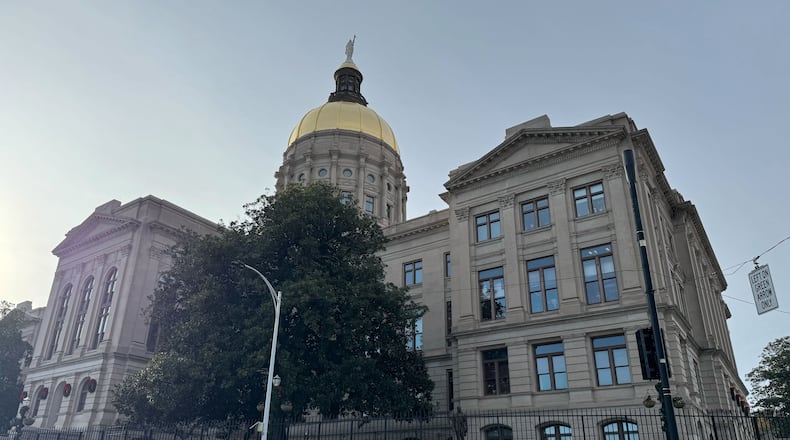Gov. Brian Kemp credits Georgia’s nearly $16.5 billion in surplus funds to conservative budgeting and a balanced approach to taxes and spending. That the state has a healthy reserve fund is not out of the ordinary, but it is significantly larger than neighboring states.
Georgia’s “rainy day” and undesignated reserves made up nearly half the 2024 fiscal year budget overall. The next closest state is South Carolina, with 44% of their total budget in reserves, according to the National Association of Budget Officers Fall 2024 fiscal survey.
On Wednesday, Georgia’s House Appropriations Committee approved an amended $40.5 billion 2025 budget that would provide an additional $197 million for Hurricane Helene relief and redirect Kemp’s proposed spending on the Department of Corrections toward things such as body cameras and additional staffing. The full state House of Representatives is expected to vote on the plan Thursday.
Daniel Kanso, senior fiscal analyst for the left-leaning Georgia Budget and Policy Institute, said large budget reserves are a sign of the times.
“We started to see this really unprecedented level of surplus emerge in the wake of the pandemic as we saw the states rebound and recover, and also inflationary pressures that contributed to a surge in revenue,” he said.
Shortly after the start of the COVID-19 pandemic, states saw economic booms driven, in part, by record federal spending and low unemployment.
The high inflation meant more income and sales tax revenue for states as people’s salaries rose and the cost of goods increased. That nationwide trend, coupled with Kemp’s conservative state revenue estimates, prevents lawmakers from spending the additional revenue coming into the state, which is part of how the state racked up its reserve funds, Kanso said.
State legislators can’t spend more tax money than the governor estimates will come in during a fiscal year.
“Both of those forces have come together to put us in this really unprecedented fiscal situation,” he said.
The financial cushion is a stark contrast from the Great Recession 17 years ago that left the state with little financial wiggle room.
This year, Kemp has proposed a conservative budget estimate for the state, as he has for the past few years.
However, Kemp’s plans to dip into Georgia’s surplus of undesignated reserves during this year’s legislative session could be a sign that the trend of states racking up cash is turning a corner.
Kemp has proposed to use $3.7 billion of surplus funds in his revised fiscal 2025 spending plan for tax refunds, tax cuts, infrastructure projects, hurricane relief following the devastation caused by Hurricane Helene last year and other projects, according to the Office of Planning and Budget.
Before the state’s amended 2025 and initial 2026 budgets are finalized, state legislators will weigh in on whether to approve all of the governor’s spending priorities.
But it’s not just Georgia that is expected to start spending from its reserves after the boom that occurred coming out of the COVID-19 pandemic. Each state budget is structured differently, which makes it difficult to compare states one to one. But here’s a glimpse at how Georgia and its neighboring states intend to spend their surpluses, as well as how Georgia’s total reserve balance compares to its neighbors, according to the National Association of State Budget Officers.
Georgia: Georgia has about 48% of its 2024 budget in reserves, or about $16.5 billion.
South Carolina: South Carolina has about 44% of its 2024 budget in surplus reserves, or about $6 billion. South Carolina Gov. Henry McMaster proposed to direct some of those funds toward tax cuts and teacher raises this year.
Alabama: Alabama has about 36% of its 2025 budget year 2024 reserve funds, or about $4.84 billion. There have been no official proposals for how reserve funds will be spent.
Florida: Florida has about 33% of its general funds in reserve for budget year 2025, or about $18.6 billion. Florida Gov. Ron DeSantis has proposed using some reserve funds for a tax holiday on guns and ammunition as well as raises for law enforcement and firefighters.
North Carolina: North Carolina has about 23% of its 2024 budget in reserve funds, or about $6.9 billion. There have been no official proposals for how reserve funds will be spent.
Tennessee: Tennessee has about 9% of its 2024 budget in reserve funds, or about $2.5 billion. There have been no official proposals for how reserve funds will be spent.
About the Author
Keep Reading
The Latest
Featured



